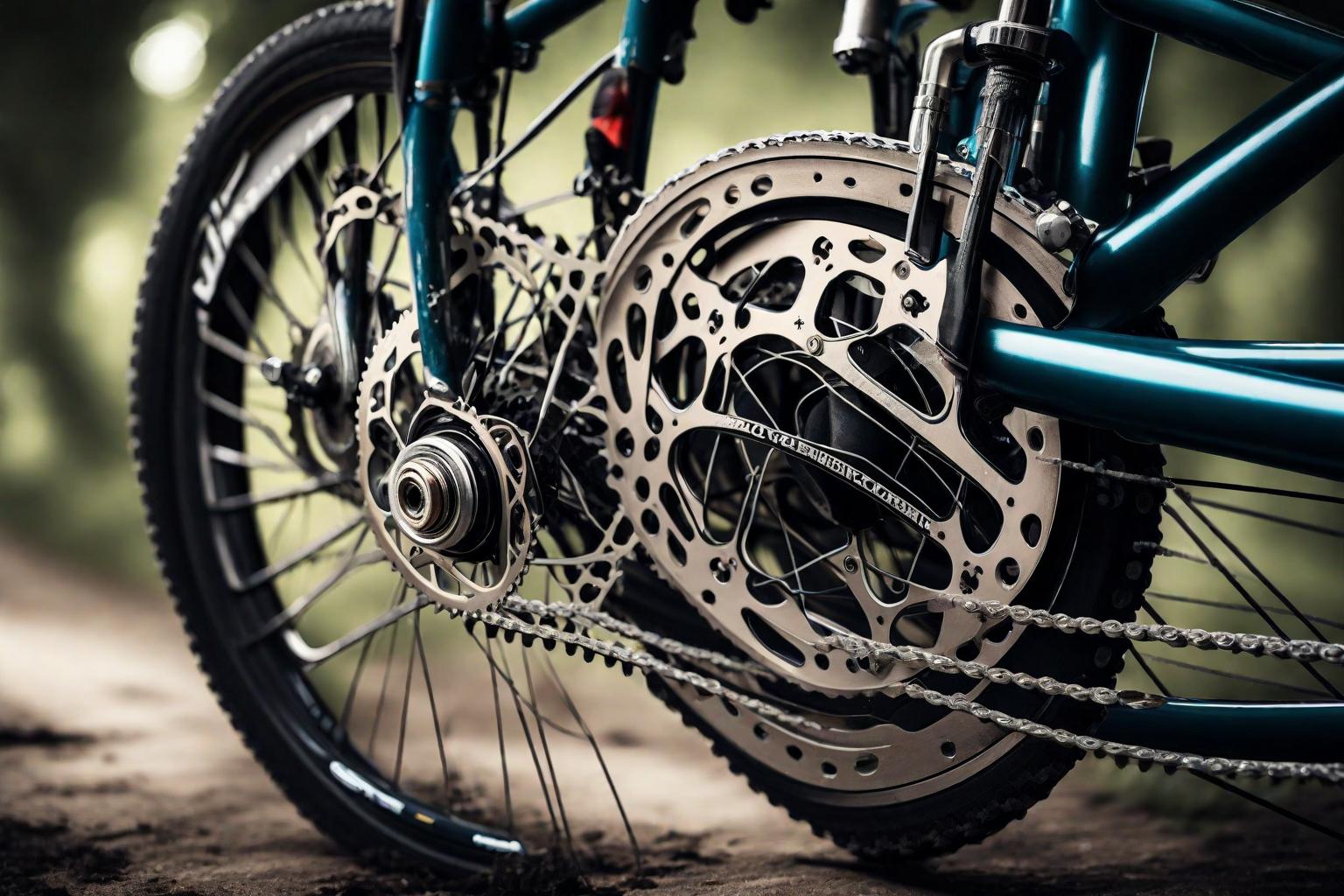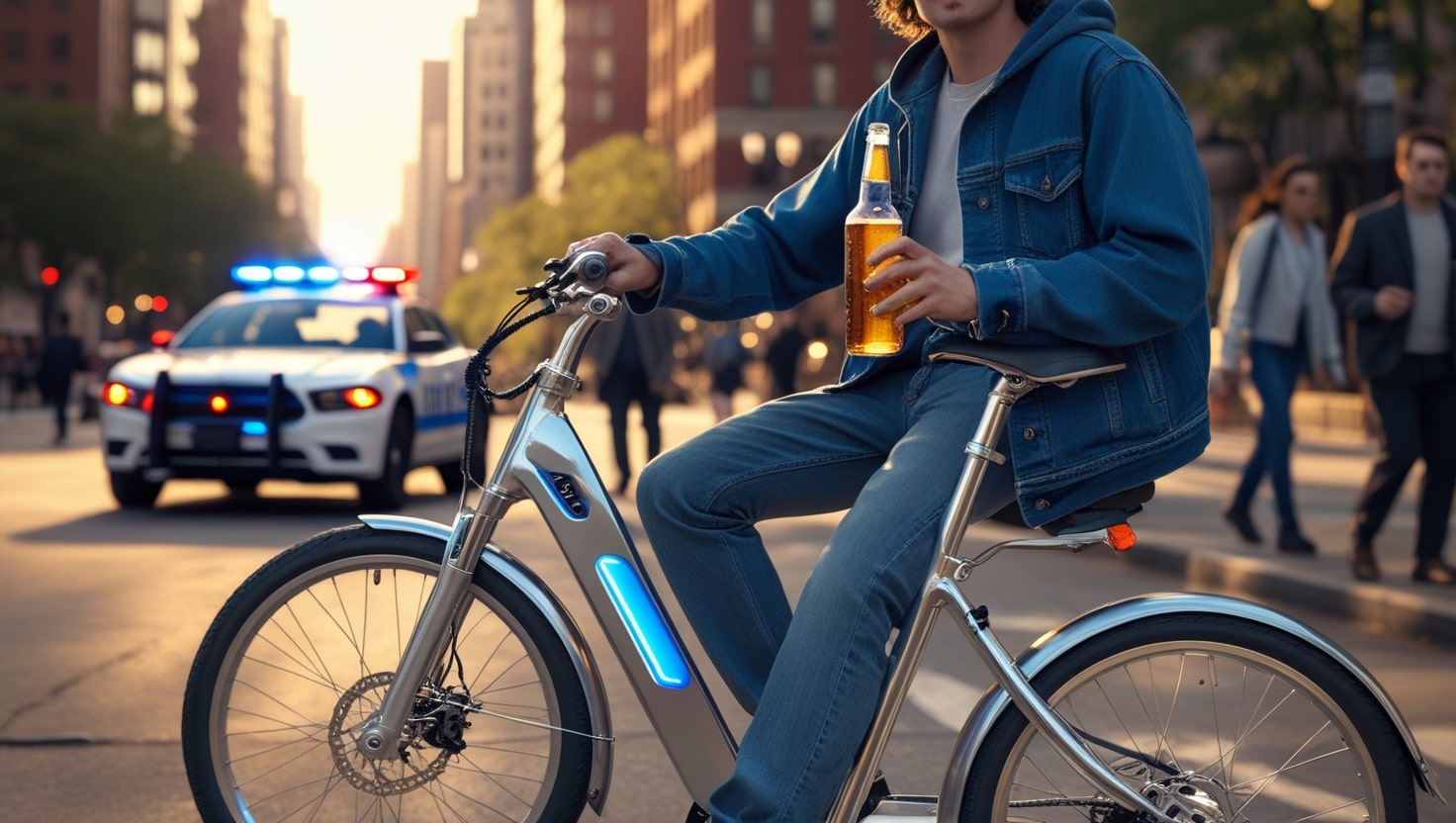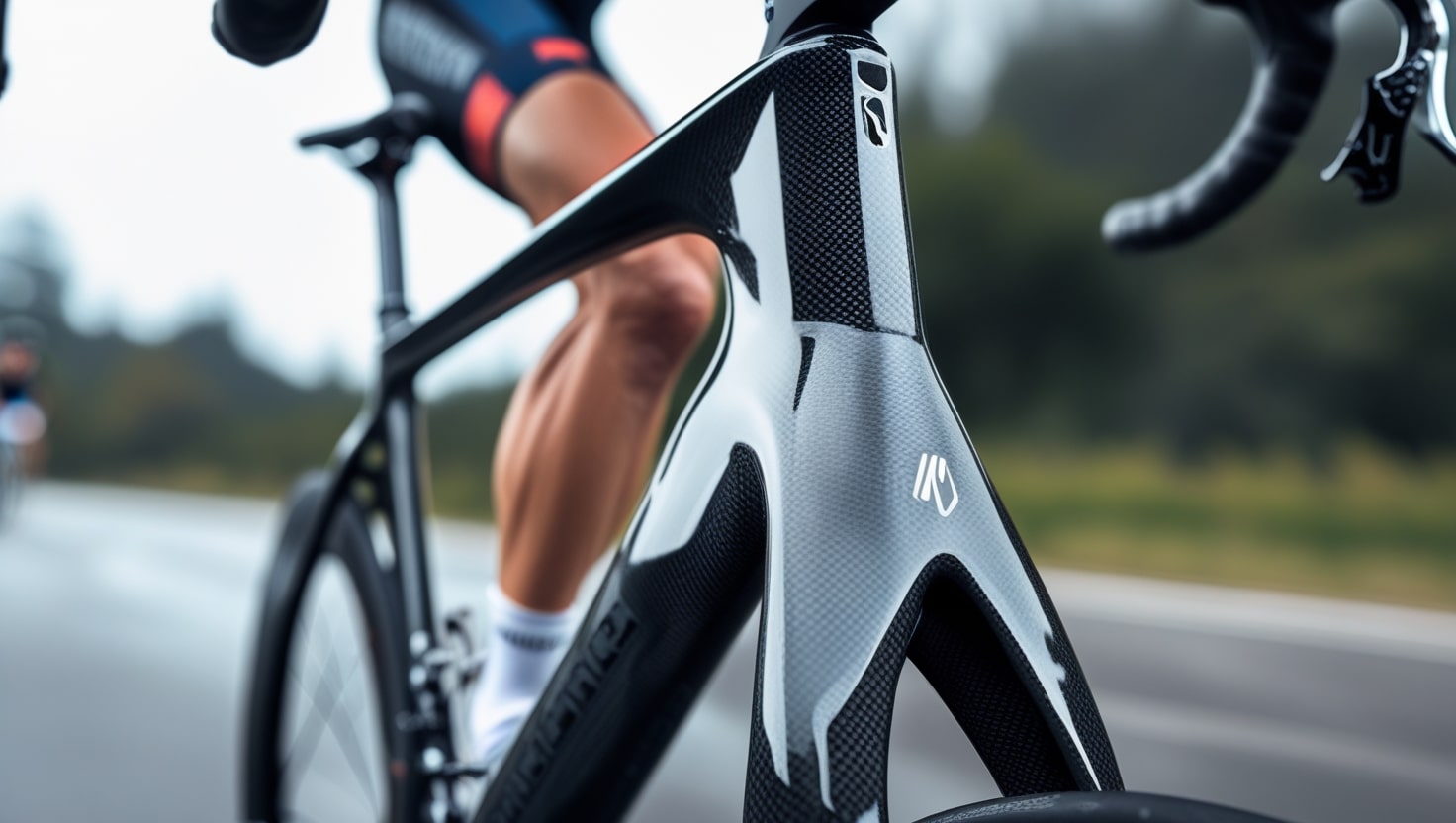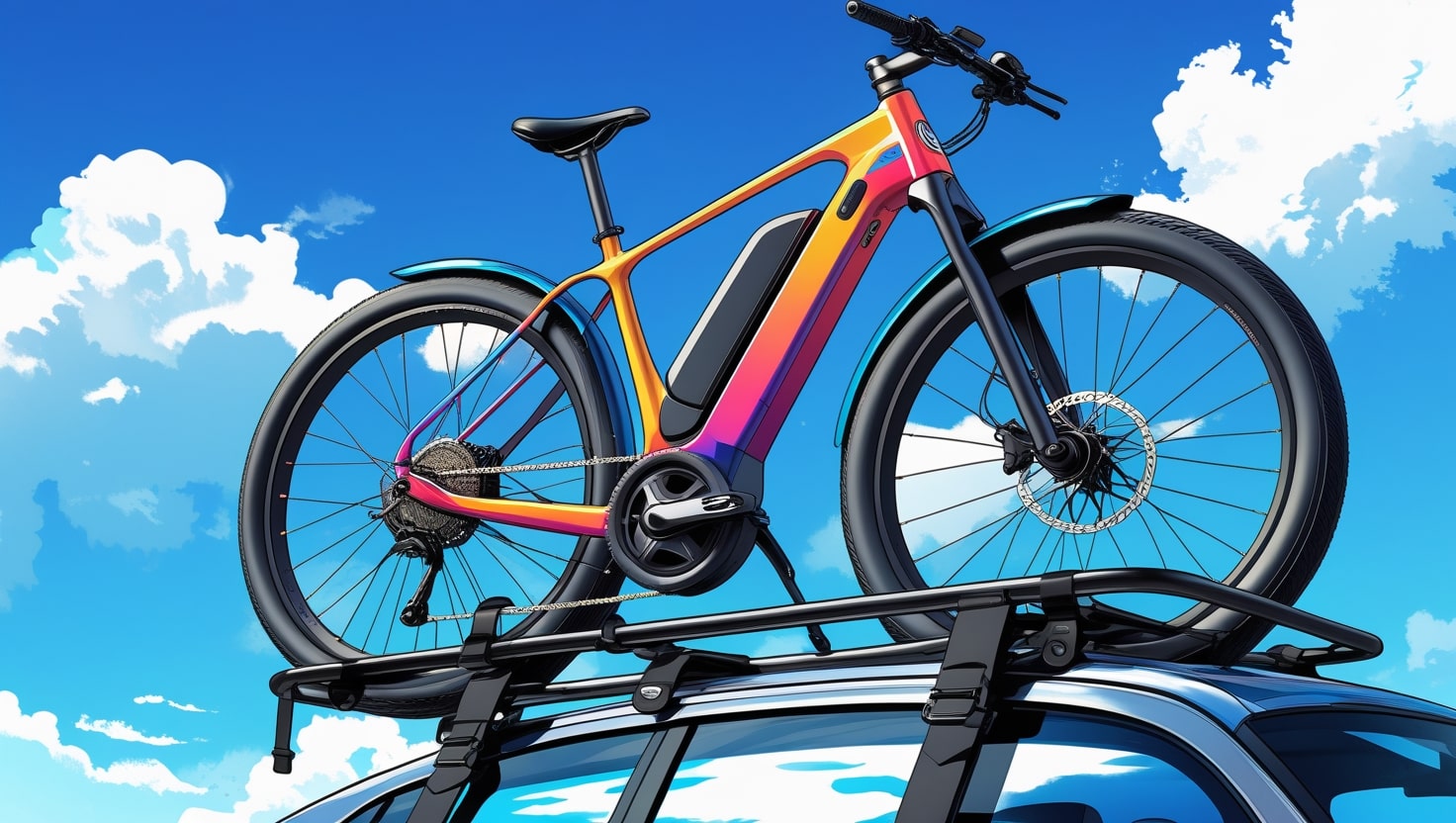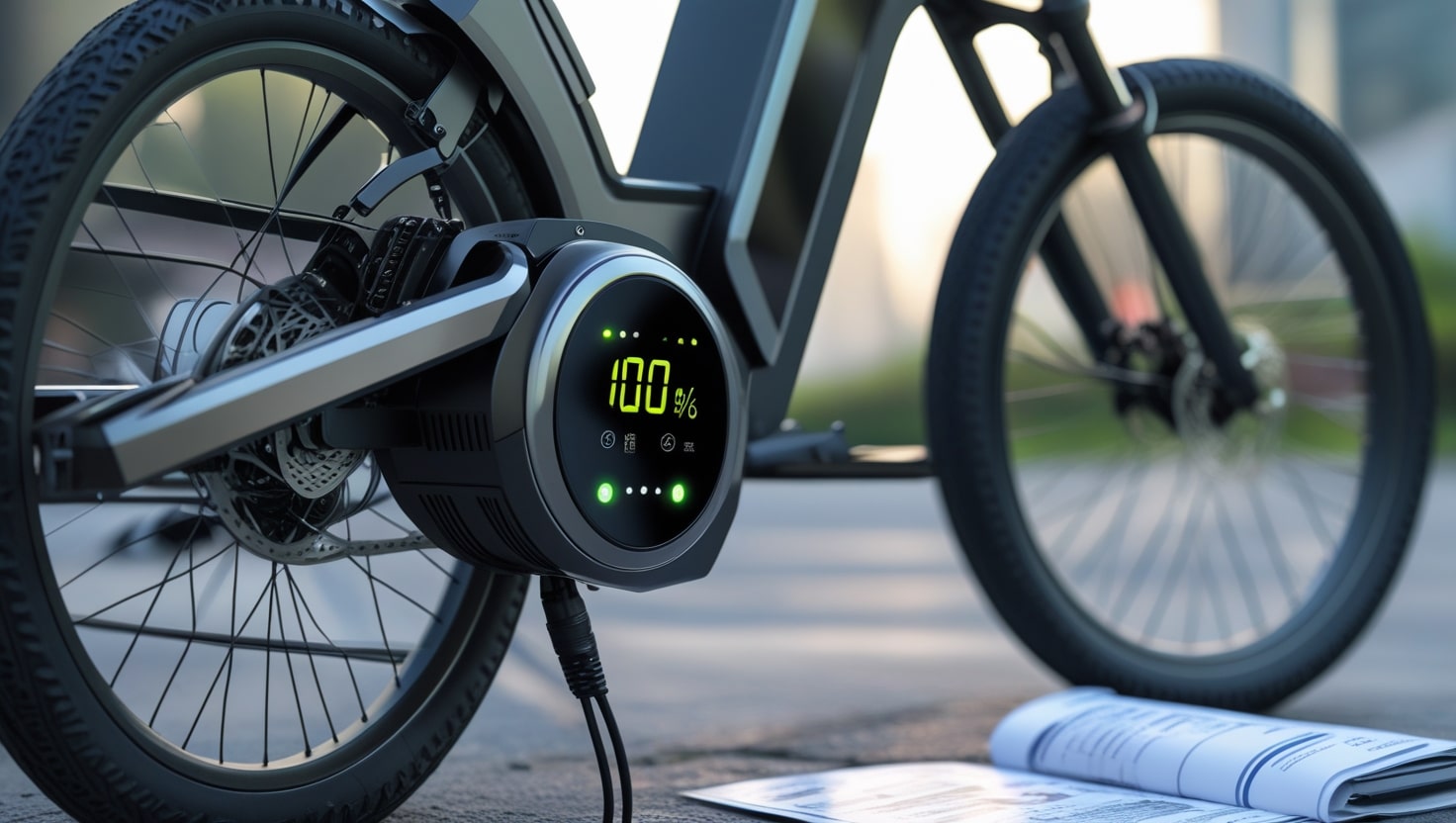Imagine you’re gliding down a quiet country lane, enjoying the view and the solitude around you, when suddenly, you pull the brakes, and a loud squealing sound interrupts the tranquillity. This noisy and squeaky issue is a familiar nuisance to many cyclists, landing right at the top of their list of annoying bike noises. But beyond the annoyance, squeaking brakes can also mean a problem with braking performance.
Over time, that squeal can lead to decreased effectiveness, which is not only irritating but potentially unsafe. So whether you’re chasing that smooth, quiet ride or just trying to restore some peace to your ride, addressing this noisy brakes issue can bring back the freedom of the open road without those grating noises that seem to shatter the calm.
Why are My Bike Brakes Squeaking?
When brakes start making a squealing or screeching sound, it’s usually a sign of contamination or misalignment. Tiny amounts of oil or grease can get onto the wheel rim or brake surfaces, causing that unpleasant noise. Sometimes, it’s simply because of new pads that haven’t fully bed in yet. If your brake pads or rotor are poorly set up, they might not contact each other perfectly, leading to unwanted vibration and noise.
Thankfully, there are several steps you can take to address these causes. For instance, cleaning braking surfaces or making minor adjustments to the set-up can help reduce the likelihood of the problem. Carefully positioning the anchors and checking for any misalignment can work wonders, particularly on disc brakes. Running through these quick fixes will often reduce or even eliminate the nasty squeal, restoring the quiet to your ride.

Rim brakes vs Disc brakes: what's the difference?
Rim brakes
To address squeaky rim brakes, it’s important to start by thoroughly cleaning all components. Begin by checking the rims and ensuring they are free from contamination like oil, grit, or dirt. If you spot any build-up, scrub it away using a degreaser to leave the surfaces completely clean. Additionally, inspect the brake blocks and confirm that they’re free of specks and are wearing evenly. Uneven wear could be a sign of improper setup or loose bolts on the caliper.
After cleaning, move to a quick inspection of all bolts and ensure they are tightly secured to the frame. Loose bolts can allow unwanted noise to develop, making the brakes noisy. A regular cleaning regime can help keep things in top shape and extend the life of your brakes.
Related: Are Pedego Bikes Worth the Money?
Common problems with rim brakes
If your brakes still make a squeal after thorough cleaning and tightening, it may mean they’re not set up properly. Begin by applying the brake and checking how the rim and block surfaces meet. If needed, loosen the mounting bolts to reposition the blocks and ensure an accurate connection. Additionally, a bit of play in the wheel bearings can contribute to the noisy braking. By addressing these reasons, you’ll improve performance and reduce unwanted sounds.
Disc brakes
For disc brakes, the most common cause of a squeaky sound is contamination. Sometimes, spray lubricants used on a bicycle can end up on the rotors or pads, leading to that annoying brake squeal. Using oil-free degreaser can help reduce this problem, keeping the brakes contaminant-free. You might also try sanding down the pads to remove any contaminants and restore braking performance. A specific brake cleaner for disc brakes is another good option that can often do the trick.
If your pads are heavily contaminated, you may need to remove them from the bike and sandpaper them to get rid of any residue. In some cases, if the squeal persists, replacing them with new ones may be the only solution. Taking good care to avoid products that leave residues on your brakes will make a big difference in keeping them working quietly and efficiently.
Related: How Are Bike Frame Sizes Measured
How do you set-up disc brakes on a bike?
Setting up disc brakes is a bit different from working with rim brakes. If the pads aren’t positioned correctly, they can hamper performance and create that annoying squeal. The most effective way to break the pads is to ride at a decent speed and apply the brakes firmly several times. This process helps make sure the discs are well-bedded and ready for smooth braking.
If the noise persists, it may be that the caliper isn’t properly aligned with the rotor. Since rotors can bend easily, they may need to be gently straightened with an adjustable spanner. Additionally, you can check the positioning by eye, making minor adjustments to make sure everything is correctly set. If these steps don’t get rid of that pesky sound, consider taking your bike to a local shop where they can help cure the squeal and restore your brake performance.
How to stop bike brakes from squeaking
If you want to stop your bike brakes from squeaking, first take a keen eye to identify the problem. Often, the issue is dirty or contaminated brake parts, so a quick clean can make a big difference. Start with simple methods like removing dirt and grime, especially on rim or disc systems. Use a step-by-step process to ensure each component is thoroughly cleaned. For more pressing issues, a deeper fix might be needed, but it’s always a good idea to try easy solutions before rushing to take bigger action. This process will help you handle any differences in brake types and keep your ride smooth.
Related: How to Size a Road Bike
Rim brakes
Step 1 – Check if they’re clean
The first step in stopping the squeal from your bike brakes is checking if any dirt, grit, or debris is caught underneath the brake pads. Over time, as the pads wear down, materials like metal, rubber, and other residue can get lodged in the space available. This build-up can create a caked layer that reduces the effectiveness of the surface contact, which should be helping slow the wheel rotation when it meets the rim.
Additionally, dirt on the calipers or surface of the rim where the brake pads make contact can further restrict the effectiveness of your brakes. This can cause a strain on the braking system, forcing it to work harder to slow the bike. Keeping these areas clean will ensure a smooth braking process and restore the brakes’ performance.
How to clean dirty bike brakes:
- Remove the wheels from your bike to access the brake pads and surrounding areas.
- Check for any dirt or clumps that may be stuck on the brake pads.
- Use a cloth to carefully wipe off the initial build-up of dirt.
- Apply an acid-free cleaner with a new cloth to tackle any stubborn dirt on the rims and brakes.
- Re-attach the wheels once everything is thoroughly clean.
- Test for squeaky brakes by applying the brakes and ensuring a smooth, quiet function.
NOTE: If the dirt looks greasy or feels greasy, it may be caused by oil or grease, and using a degreaser can help clean it up. Over lubing the chain is often the culprit behind screeching brakes!
Related: Are Retrospec Bikes Good?
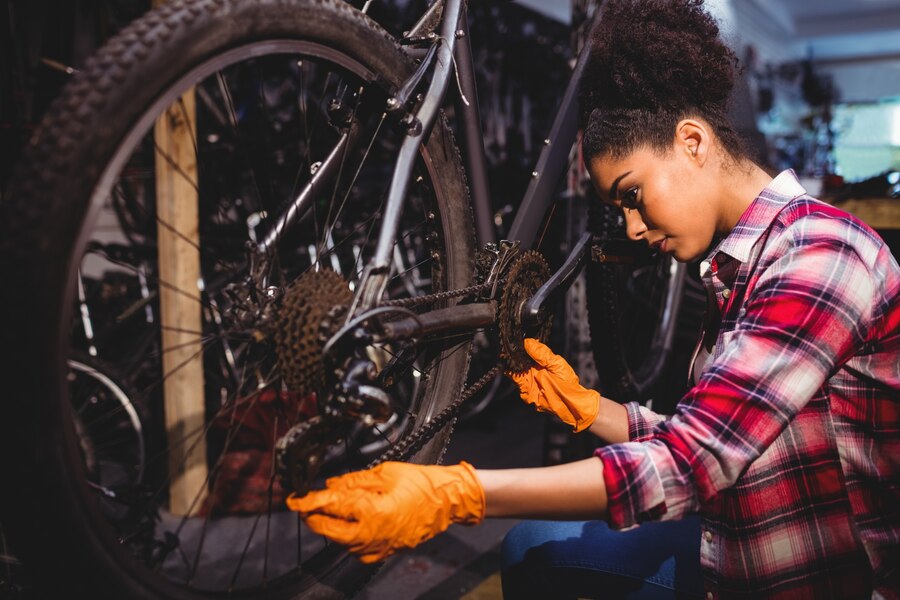
Step 2 – Check the set-up of your brakes
To address squeaky bike brakes, start by checking if the rim brakes are misaligned. The easiest way to spot this is by applying the brake and seeing how the pads meet the wheel rims. If they aren’t meeting correctly, carefully loosen the mounting bolts and reposition the pads to create a strong connection with the rims. Adjusting the toe of the pads, so the front section touches the rim first, can help establish a parallel and gradual braking system. This setup lessens the chance of unwanted noise and improves braking performance.
How to toe-in your brake pads:
- Place a standard piece of card between the brake pad and the rim to create a small gap.
- Apply the brakes gently to ensure the card stays in place.
- Use an Allen key to loosen the bolt that is securing the calipers just slightly; this helps to reset the position of the pad.
- Once aligned, re-tighten the bolt, and the process is complete.
Related: What Muscles Does Bike Riding Work
Step 3 – Check brake pad condition
Start by inspecting your brake pads for any signs of wear or tear. If the pads are worn, it’s likely that they’re causing your bike brakes to become noisy and less effective. Over time, material on the pads wears down, reducing the accuracy of the connection between the pads and the wheel rims. Replacing them with a new set can make a noticeable difference in how well your brakes work and help in stopping the squeaking.
If you’ve tried other solutions and still hear a squeak, replacing your brake pads may be the last resort. We recommend researching the best type of pad material that matches your wheel rims. This step can ultimately save you from repeating the issue and improve your riding experience by making your brakes quieter and more responsive.
Disc brakes
Step 1 – Check if they’re clean
To start, make sure your disc brakes are free from contamination. Because of the way rotors and brake pads are positioned, they tend to attract less dirt compared to rim brakes. However, debris and dirt can still get caught between these surfaces if there’s heavy lubing on the chain, which is a likely cause of unclean brakes. Regular maintenance sessions are useful to keep everything clean and avoid issues with rotors or pads, so check them tighter to keep your ride smooth and quiet.
To remove contamination from the router, you can simply:
- Grab a clean cloth and some disc brake cleaner for this task.
- Spray the cleaner directly onto the rotor to target any oil buildup.
- Wipe away the oil using the cloth until the surface is fully clean.
Contamination on a disk pad can be a bit more difficult to fix.
To test them, you can try the following:
- Remove the wheels from your bike to access the brake pads.
- Carefully take out the pads for a closer inspection.
- Check each pad for any oil or grease buildup, as this can cause squeaking.
If they are dirty, try applying some dirt to the area after reattaching the brakes and wheels, then apply the brakes firmly. This method can sometimes solve the problem.
If that doesn’t help, you may need to use a vice and blowtorch to burn off the oil. If you don’t have these tools, a trip to a bike shop may be necessary.
Related: How to Measure Inseam for Bike
Step 2 – Check if the pads or rotors are glazed
If your disc brake pads or rotors are glazed or worn, this could be the leading issue causing squeaks. Glazing makes the braking surfaces smooth, which is a natural result of repeated braking over many miles. When this happens, the pads and rotors lose their rough state, reducing their effectiveness. To resolve the problem, you’ll need to return the surfaces to a rougher texture, which improves grip and stopping power for your bike. Regular checks help cyclists avoid this contaminated state and keep braking efficiently.
For the rotors, you can:
- Grab some 150-grade sandpaper and cloth along with disc brake cleaner.
- Wipe the surface of the pads or rotors with the cleaner and cloth to remove any dirt.
- Use the sandpaper to gently rub in a circular motion to roughen the surface.
- Change the sanding direction to up and down, then side to side for even coverage.
- Continue sanding until the surface feels rough again to improve braking efficiency.
Using different sanding motions can help prevent this problem from recurring, as a less uniform surface reduces the chance of the glazing returning.
Next, here’s what to do to fix the pad:
- Grab some 150-grade sandpaper and place it on a flat and stable surface.
- Hold the pads firmly and rub them face down against the sandpaper.
- Continue rubbing until the roughness returns to their surface for better braking performance.
Related: How Heavy is a Motorcycle?
Step 3 – Check the alignment of the callipers
To ensure your calipers are aligned properly, start by placing your bike in a stand and spin the front wheel. If the wheel spins freely with equal space on either side of the disc brake pads, the alignment is good. However, if you notice uneven spacing or the wheel doesn’t move freely, this misalignment could be the issue causing the squeak.
To fix this, loosen the mounting bolts that are securing the calipers in place. Then, sharply apply the brakes and re-tighten the bolts while holding the brakes down. Repeat this checking process with the back wheel to confirm everything is aligned. Properly aligned calipers help prevent unwanted noises and improve braking performance.
Step 4 – Check if the rotors are bent
A specific issue in disc braking systems is bent rotors, which can be a likely cause of squeaky brakes if re-centring the callipers didn’t fix it. To check for this issue, place your bike in a stand and spin the front wheel. Observe the rotor as it moves around the callipers and see if it stays in a straight position or wobbles. A bent rotor will move unevenly and may need adjustment.
If the rotor is bent, grab an adjustable spanner and fit it to the width of the rotor. Apply the spanner to the bent area and gradually use resistance to push it back toward its original position. If it’s too bent to correct this way, you may need to replace the rotor entirely. Learning this quick fix can help you avoid squeaky brakes and keep your ride smooth.
Related: Best Backpacks for Motorcycle

